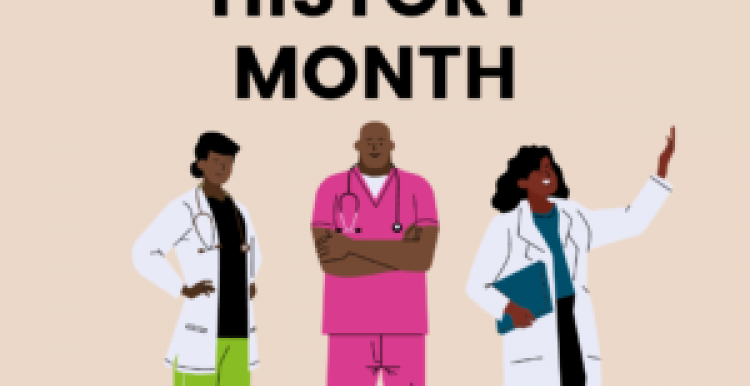Black History Month

Kofoworola Abeni Pratt, James McCune Smith and John Alcindor all qualified as healthcare professionals at a time when it was revolutionary for them to do so. They all also played a major part in the fight for civil rights. The impact they had, not only in their time but for generations to come should be celebrated.
Kofoworola Abeni Pratt
Kofoworola Abeni Pratt was the first Black nurse to work in the NHS and later became the Chief Nursing Officer for Nigeria and the Commissioner For Health for Lagos State.
Born in Lagos, Nigeria, in 1915, Pratt originally trained as a teacher and taught in a girl's school before moving to England in 1946, where she enrolled in the Nightingale School at St Thomas' Hospital in London. She qualified as a State Registered Nurse in 1950 and worked within Evelina London Children's Hospital and St Thomas' Hospital.
Upon Pratt's return to Nigeria in 1954, she continued her nursing career despite the obstacles against her. At this point, Nigeria was still under British rule as a colony, and only British expatriates were permitted to work as a nurse by the Colonial Nursing Service. Although Pratt had British nursing qualifications, she was initially denied a post at Adeoyo Hospital until she was supported by the Matron and was finally allowed to work. By 1965, Pratt herself was Matron.
In the ten years that it took her to go from Medical Ward Sister to Matron, Pratt also spent her time co-founding the Professional Association of Trained Nurses of Nigeria, becoming the leader of the first Nigerian delegation to the International Council of Nurses Congress in Rome, being the President of the Professional Association of Trained Nurses of Nigeria, being a member of the Expert Advisory Panel on Nursing for the World Health Organisation, and being Nursing Advisor to the Nigerian Red Cross.
James McCune Smith
Dr James McCune Smith became the first African American person to hold a medical degree in the United States – but it was in Scotland where he studied and qualified as a doctor.
Smith attended the African Free School in New York, and despite graduating at the top of his class, he was denied admission to Columbia University and Geneva Medical College because of racial discrimination. However, at the encouragement of his African Free School tutor, Rev. Peter Williams Jr, he applied to the University of Glasgow and was accepted.
At the University of Glasgow, Smith earned his bachelor's degree in 1835, his master's degree in 1836, and his medical degree in 1837. He was also trained in the emerging science of statistics, which he later put to use by publishing articles with data that refuted common arguments of those who continued to enslave Black people.
Smith challenged racism within the medical field – replacing a doctor at the 'Colored Orphan Asylum' in New York after calling him out for racist negligence. Smith worked within the orphanage as a doctor for 20 years and implemented vast improvements, including expansions to the medical ward.
He also became the first African American to set up his own pharmacy in New York and kept the back rooms for activists to gather and discuss their abolitionist work.
Dr Smith was a central and active member of civil rights and abolitionist groups, joining the American Anti-Slavery Society, co-founding the National Council of Colored People, and directing the Colored People's Educational Movement.
John Alcindor
Known in his time as the famous black doctor of Paddington, John Alcindor was a World War One hero who cared for wounded soldiers upon their arrival in London - despite a racist rejection from the Royal Army Medical Corps.
Born in Trinidad in 1873, Alcindor graduated with a medical degree from Edinburgh University in 1899. Upon graduation, he worked for several hospitals and doctors until he set up his own practice in Paddington.
1914 saw the outbreak of the First World War, and Alcindor knew that his medical skills could help. Despite being a qualified doctor with 15 years of experience, he was rejected by the Royal Army Medical Corps due to his 'colonial origin'.
Despite the outright racism that he had encountered, Alcindor wanted to help in the war effort and signed up as a volunteer with the British Red Cross. Through his Red Cross voluntary work, he helped an incredible number of wounded soldiers at London Railway Stations who were returning from battlefields. He saved the lives of many young soldiers and was later awarded a Red Cross Medal for his work in the war.
Aged 51, Alcindor died in 1924. Whilst he lived on in local legend, his story was mostly lost. However, in 2014, on the 100th anniversary of the WW1 outbreak, members of his family unveiled a Blue Plaque above his former practice in Paddington on national television. The plaque reads 'Dr John Alcindor 1873-1924. Physician, Pan-Africanist and WW1 local hero'.
